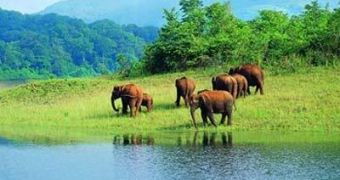As we previously reported, an international conference that took place in Geneva just last week aimed at developing new conservation projects.
The end goal was that of putting an end to illegal hunting activities involving elephants, rhinos, tigers and several other endangered species.
The World Wildlife Fund (WWF) now argues that, although a stricter legislation is indeed necessary so as to discourage poaching, said conservation projects can only be successful if the people living close to wildlife sanctuaries get involved and lend a helping hand.
As they explain, nature reserves are, more often than not, located in the midst of human society: they are surrounded by villages, agricultural lands and roads.
Therefore, if poachers are to no longer have access to these animals, it is crucial that local people act as a barrier between these hunters and the wildlife sanctuaries.
WWF also makes a case of how individuals belonging to indigenous communities outnumber park rangers, and could, therefore, be much more successful in keeping a close eye on what is happening inside nature reserves.
Naturally, in order to determine locals to get involved in conservation projects, efforts must first be made to educate them with respect to the importance of preserving our world's biodiversity.
Moreover, they are to be made aware of the fact that maintaining healthy ecosystems is also crucial for their carrying on with their present lifestyle.
Seeing how they depend on local natural resources to a great extent, they are directly interested in keeping poachers from negatively impacting on the natural balance of the areas where they live.
According to WWF, such collaboration between indigenous communities and conservationists is first and foremost needed in Southeast Asia, where the local tiger and elephant population suffered a considerable decline over the past years of a result of poaching activities.
Interestingly enough, it seems that the WWF has already experimented with getting locals involved in wildlife conservation.
Thus, back in 2008, it successfully implemented such a project in Thailand. Apparently, from that moment on, attacks by poachers grew to be few and far in between.

 14 DAY TRIAL //
14 DAY TRIAL //